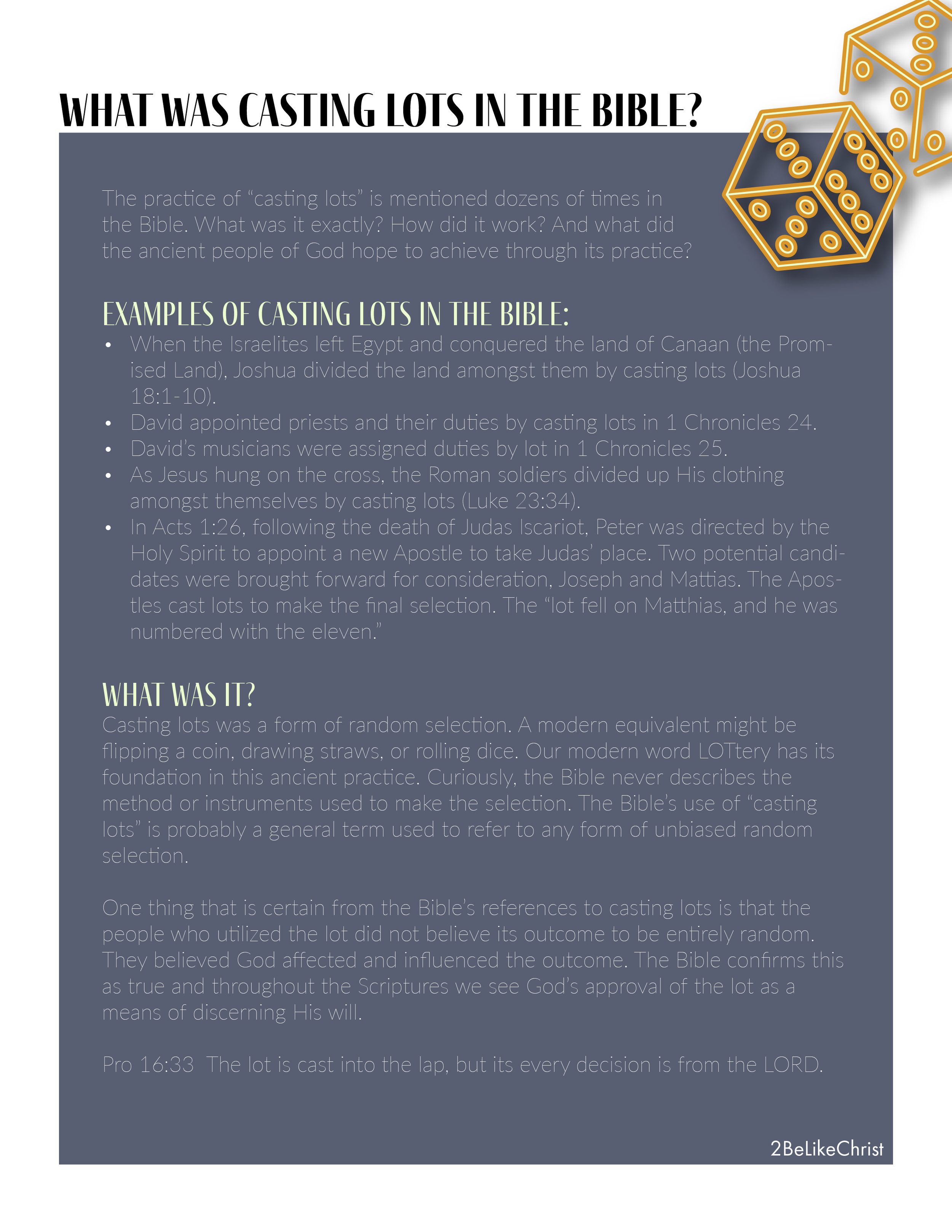What was the Practice of Casting Lots?
The practice of casting lots is mentioned dozens of times in the Bible. What was it exactly? How did it work? And what did the ancient people of God hope to achieve through its practice?
Examples of casting lots in the Bible:
When the Israelites left Egypt and conquered the land of Canaan (the Promised Land), Joshua divided the land amongst them by casting lots (Joshua 18:1-10).
David appointed priests and their duties by casting lots in 1 Chronicles 24.
David’s musicians were assigned duties by lot in 1 Chronicles 25.
As Jesus hung on the cross, the Roman soldiers divided up His clothing amongst themselves by casting lots (Luke 23:34).
In Acts 1:26, following the death of Judas Iscariot, Peter was directed by the Holy Spirit to appoint a new Apostle to take Judas’ place. Two potential candidates were brought forward for consideration, Joseph and Mattias. The Apostles cast lots to make the final selection. The “lot fell on Matthias, and he was numbered with the eleven.”
What was it?
Casting lots was a form of random selection. A modern equivalent might be flipping a coin, drawing straws, or rolling dice. Our modern word lottery has its foundation in this ancient practice. Curiously, the Bible never describes the method or instruments used to make the selection. The Bible’s use of “casting lots” is probably a general term used to refer to any form of unbiased random selection.
One thing that is certain from the Bible’s references to casting lots is that the people who utilized the lot did not believe its outcome to be entirely random. They believed God affected and influenced the outcome. The Bible confirms this as true and throughout the Scriptures we see God’s approval of the lot as a means of discerning His will.
Pro 16:33 The lot is cast into the lap, but its every decision is from the LORD.
You can download this handout on the Printables page of our website.
